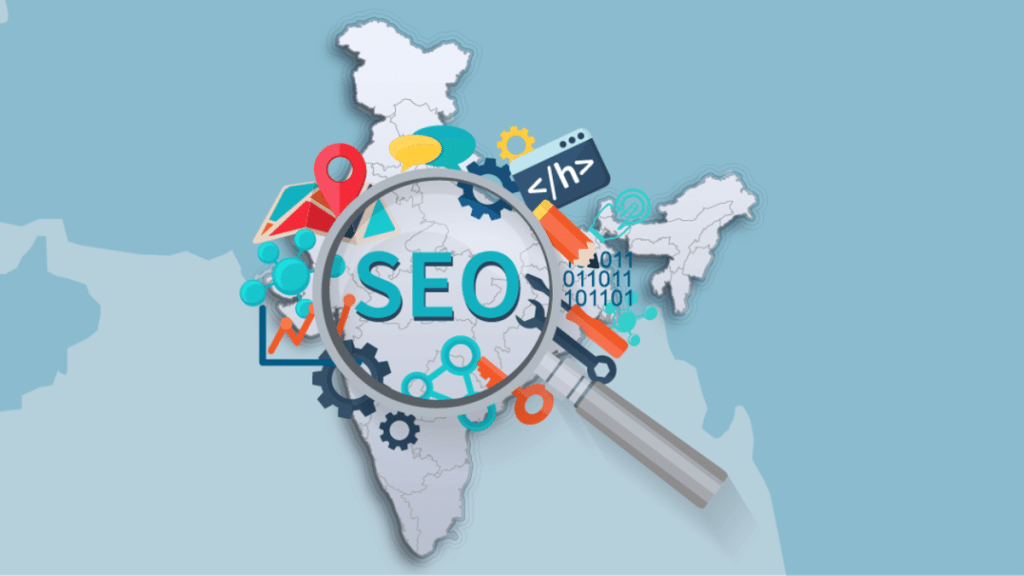One-size-fits-all tactics are no longer effective in winning the SEO game. Businesses today are faced with a key decision: stick with a generalist SEO agency or go niche with an industry-specific expert?
Does deep industry knowledge give specialized agencies an edge, or can generalists compete with broader experience? This blog breaks down the pros & cons of industry-specific SEO agencies, explores how they tailor strategies to your market, and helps you decide which type of partner is best for your business.
Know About Industry-Specific SEO Agencies
An industry-specific SEO agency focuses exclusively on optimizing websites within a particular sector. Whether healthcare, e-commerce, legal services, or hospitality, these agencies possess in-depth knowledge of the industry’s nuances, audience behavior, and competitive landscape.
This specialization enables them to craft SEO strategies that connect more effectively with the target audience.
Advantages of Industry-Specific SEO Agencies
While generalist agencies offer broad-spectrum strategies, industry-specific SEO agencies provide targeted, sector-driven approaches that often result in more meaningful outcomes.
Let’s explore the top advantages of partnering with a niche SEO agency and why this focused strategy could give your business a competitive edge.
1. Deep Industry Expertise
Industry-specific agencies bring in-depth knowledge of your field’s unique challenges, audience behavior, and compliance standards. From sector-specific jargon to consumer pain points, these agencies already understand what resonates and doesn’t.
“An industry-specific SEO agency already knows what works and what doesn’t in your field. They won’t waste time testing generic strategies.”
— EntheosWeb | Graphic & Web Design
This experience enables them to build SEO strategies optimized for search engines that are aligned with your business objectives and customer expectations.
If you’re a business looking for expert SEO services, working with a specialized SEO agency in Toronto like RankLab can provide tailored strategies that align perfectly with your industry’s needs. Their deep grasp of regional trends and industry nuances ensures faster, more efficient results.
2. Tailored Keyword Strategies
Keyword research isn’t just about volume; it’s about relevance. Industry-focused SEO agencies are skilled at identifying niche long-tail keywords, transactional search terms, and emerging keyword trends specific to your sector.
“When you choose to work with a niche SEO agency, there will be less time wasted doing keyword research for long-tail keywords.”
— algorithmicglobal.com
This targeted keyword approach improves your chances of ranking higher for the exact queries your potential customers are searching for, resulting in more qualified traffic and better conversion rates.
3. Faster Implementation and Results
Because they already understand your market’s dynamics, specialized SEO agencies don’t need a lengthy onboarding period to “learn your industry.” This results in faster deployment of strategies and, in many cases, quicker visibility improvements.
“A specialized agency understands your market, so they’ll hit the ground running. Their targeted approach leads to quicker results.”
— EntheosWeb | Graphic & Web Design
You benefit from pre-tested tactics, proven workflows, and streamlined execution that can help boost your rankings and ROI without unnecessary delays.
4. Enhanced Competitive Analysis
Knowing what your competitors are doing—and how you can do it better—is crucial in any niche. Industry-specific agencies have tools and frameworks tailored to evaluate competitors within the same vertical, uncovering gaps, opportunities, and strategic insights.
“These agencies study your competition closely. They’ll analyze what your rivals are doing right—and where they’re falling short.”
— EntheosWeb | Graphic & Web Design
Armed with this intelligence, these agencies can develop campaigns that strategically outpace competitors and improve your market positioning.
5. Customized Content Creation
Content isn’t one-size-fits-all. Industry-specific agencies craft highly relevant content that addresses your audience’s questions, pain points, and aspirations. Whether blog posts, landing pages, or technical articles, they know how to speak your customers’ language.
Considerations When Choosing an Industry-Specific SEO Agency

While industry-specific SEO agencies bring focused expertise and faster execution, partnering with one isn’t always the default best choice for every business. Before committing, it’s essential to weigh key factors impacting both short-term performance and long-term scalability.
1. Higher Pricing for Specialized Services
Specialized knowledge often comes at a premium. Industry-specific agencies typically charge more than generalist SEO firms due to their niche expertise, experience with sector-specific algorithms, and curated content development.
Why it matters: If your budget is tight, this premium pricing can affect how much you can invest in other digital strategies such as paid ads, conversion rate optimization, or technical upgrades. While you may get a more refined strategy, ensure it aligns with your financial resources.
2. Narrower Strategic Outlook
Industry-specific SEO agencies often apply the same proven tactics across multiple clients in the same vertical. While this can fast-track implementation, it can lead to stagnation or overly predictable strategies.
Why it matters: SEO trends evolve rapidly. Generalist agencies often borrow innovative ideas from different sectors (e.g., e-commerce tactics applied to SaaS or hospitality), giving you a competitive edge. With niche agencies, innovation might be less frequent.
3. Scalability May Be Limited
Some industry-focused SEO agencies are boutique firms with small teams and fixed service packages. As your business scales, expanding into new markets or adding more digital products, you might outgrow their capabilities.
Why it matters: You need an SEO partner to grow with you. Ask whether the agency can handle multi-location SEO, multilingual content, advanced technical audits, or integrate with enterprise-level platforms. If not, you may need to switch partners mid-growth.
4. Potential Overlap with Competitors
You may compete with your SEO partner’s other clients if an agency serves multiple businesses in the same niche. Even with non-compete clauses, strategy overlaps can happen unintentionally.
Why it matters: This could result in recycled content, duplicate keyword targeting, or even backlink cannibalization. Make sure to clarify how the agency maintains unique strategies for clients within the same industry.
5. Overemphasis on What’s Familiar
Niche agencies may focus on historically worked strategies, like optimizing local real estate directories or long-form legal guides. While these might still be effective, they could overlook emerging formats like video SEO, voice search, or AI-driven content.
Why it matters: Your SEO strategy must evolve to stay competitive. A partner who’s too rigidly focused on what has worked before might miss the opportunity to test newer approaches.
Making the Right Choice for Your Business

Deciding between a generalist and an industry-specific SEO agency depends on your business’s unique needs, goals, and resources. Consider the following:
- Business Stage: Startups or businesses entering a new market might benefit from the broad strategies of generalist agencies.
- Industry Complexity: Industries with complex regulations or specialized knowledge may require the expertise of a specialized agency.
- Budget Constraints: Evaluate whether the potential ROI justifies the higher costs associated with specialized agencies.
- Growth Plans: Ensure the agency can scale its services per your business expansion.
The Bottom Line
Industry-specific SEO agencies offer tailored strategies, deep sector knowledge, and potentially faster results, making them a compelling choice for businesses within specialized fields. However, weighing these benefits against considerations like cost, scalability, and the need for diverse perspectives is essential. You can select an SEO partner that best supports your growth and online visibility by aligning your choice with your business objectives and resources.
